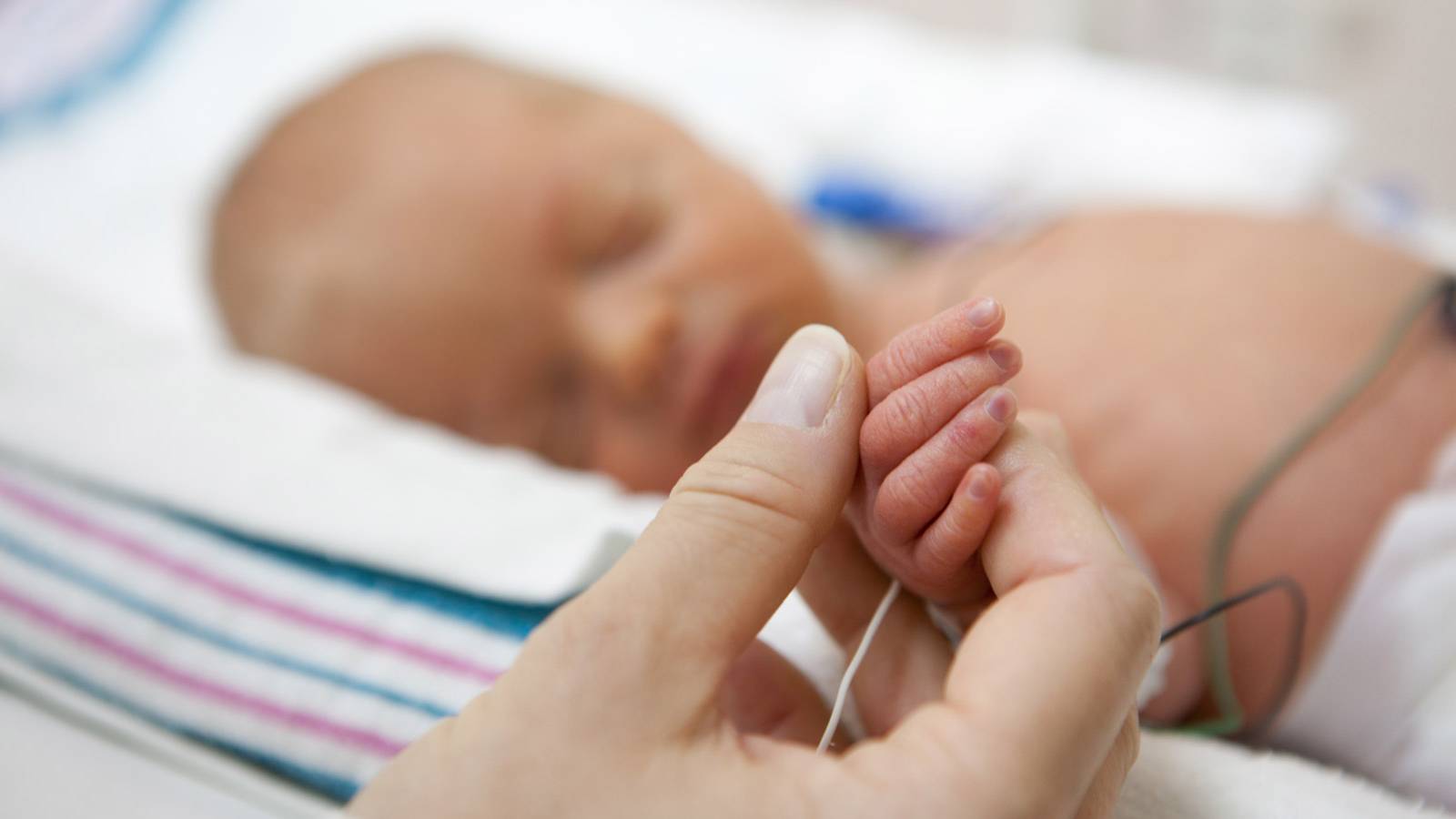Your tiny bundle may have arrived early but he’s a warrior! Find out why you should give extra TLC…

If your baby is born before 37 weeks of pregnancy, he’s a premature baby or a preemie. A baby that’s full-term is usually born at between 37 and 42 weeks. No one wants a pre-term baby, not least since he might experience challenges growing up.
SmartParents expert Dr Christopher Chong notes that most preterm births occur during the third trimester, at around 34 weeks into one’s pregnancy. However, babies have also been delivered at 24 weeks of gestation.
Needless to say, a preterm baby’s needs can differ greatly from a full-term one. Give him the best chance of survival by arming yourself with facts about his needs! Here’s what you need to know…
1) He’ll need more tools to survive
The more premature bubba is, the more he’ll rely on artificial support from machines to survive. Unlike full-term babies, who are naturally able to adjust rapidly to breathing on their own within the first few minutes of life.
Dr Low notes, “Additional physiological support will be provided to preterm [babies] such as warmth, oxygen, respiratory and cardiac support.”
Due to his low birthweight and low body fat, your kewpie will likely rely on the incubator to help keep warm. Oxygen respirators are crucial in the event your little one “forgets” to breathe — a condition called apnoea. Even as your baby may become healthy enough to leave the hospital, the docs may insist that you have such equipment on standby at home.
Dr Chong points out that more babies born earlier than 34 weeks and without any organ or foetal problems have a “generally good” prognosis for survival.
2) Although bubba may look a little different…
The majority of premature babies have a low birthweight — tipping the scales at less than 2.5kg. SmartParents expert Dr Low Kah Tzay, a paediatrician, shares, “[Pre-term babies] are usually expected to catch up by the age of 2 years. Of course, for extremely preterm baby born at 24 weeks, they will need more time to catch up.”
More critically, you should ensure your kewpie is putting on weight in the weeks following birth. If you baby has problems gaining weight, it could suggest that his digestive system is not developing properly or that he is not getting sufficient nutrition from breastfeeding. Full-term infants can suckle to obtain nutrition or hydration without any assistance within mere hours from birth.
3 ) … he has a good chance of survival
Thanks to continuous advancements in medical science, babies born prematurely or weighing 800g or more (around week 27) should survive. Dr Chong points out that more babies born earlier than 34 weeks and without any organ or foetal problems have a “generally good” prognosis for survival. Babies born after 34 weeks of pregnancy stand an even better chance of survival.
Dr Chong explains, “In Singapore, we are fortunate that most patients have very good antenatal care and often premature labour before 34 weeks of gestation can possibly be delayed till past 34 weeks — when survival rates are much better — with excellent management and medication.”

4) Skin contact is vital to calm your kewpie
Touch him and carry him in your arms and offer as much skin contact as possible. Skin-to-skin contact — also known as kangaroo care — has been found to have dramatic positive effects on preemies and even full-terms newborns. Besides touch, your voice can soothe your little one. Remember that infants are able to distinguish the sounds of their parent’s voices, so continue to speak to your baby in a loving tone or read him a story.
5) Breastmilk is best for him
A mother’s breastmilk ― some refer to it as “liquid gold” ― is best, especially for premature baby. Dr Low advises that mothers should provide breastmilk as soon as they can as breastmilk is more easily absorbed and digested while providing baby’s body with the antibodies to guard against infections. Breastmilk is also high in micronutrients, which can enhance your baby’s brain development.
While some preterm babies can be breastfed directly, most will only be fed after their respiratory functions have stabilised. Even then, Dr Low points out, “They will be started on feeds which are usually given via gastric tube at a small volume to allow preterm babies to adjust and adapt.”
The more premature your infant, the higher risk they risk suffering intestinal inflammation — or necrotising enterocolitis (NEC) — which can lead to heavy blood loss from the digestive tract. Dr Low stresses, “If baby is fed breastmilk, the risk for NEC is reduced significantly.”
“If baby is fed breastmilk ― the risk of necrotising enterocolitis (intestinal inflammation) — is reduced significantly.”
6) He’s more susceptible to life-threatening conditions
Understandably, organs tend to be less developed in preterm babies, with most issues affecting the respiratory and digestive systems. Premature babies can also become ill fast, so it’s crucial that you remain alert to spot any signs of trouble as a mild condition can prove fatal! Dr Low shares the top five most life-threatening conditions to look out for:
* Respiratory distress syndrome Also known as hyaline membrane disease, this condition is marked by the lack of surfactant in a baby’s lungs. Naturally occurring, surfactants are substances that keep the lungs inflated and help to prevent the air sacs in the lungs from collapsing.
* Lung haemorrhage Also called pulmonary haemorrhage, this can set in as early as two and half days after birth as acute and massive bleeding in the lung causes baby to cough up blood.
* Brain haemorrhage The less developed blood vessels in baby’s brain are delicate and more likely to break and bleed. The most common symptoms to look out for are decreased reflexes, weak suction of the mouth, seizures and breathing pauses.
* Intestinal inflammation A painful swelling of the intestinal tract. While most premature babies do recover from this condition. However, some may experience intestinal problems later in life, especially if he has had operations to remove scar tissue in his bowels, which can compromise the body’s ability to get nutrients from food.
* Blood infection The first in three stages of the condition, your baby’s body temperature can rise above 38.3 deg C or drop below 36 deg C. In the second stage, the quantity of your baby’s urine will decrease significantly and he’ll start to show signs that he has difficulty in breathing. If left untreated, these infections can result in sepsis, the body’s deadly response to infectiontic shock, which can deteriorate to septic shock and even death.
7) Milestones should be assessed according to baby’s adjusted age
Developmental milestones ― commonly divided into motor skills, cognitive skills, language skills and social skills ― apply to all babies. Don’t worry if your preemie isn’t reaching specified milestones. Dr Low explains that preterm babies are assessed according to an adjusted or corrected age. Baby’s adjusted age is calculated from the expected date of delivery instead of the chronological age from date of birth. So, if your baby is born in January but was expected to be delivered in February, then you should assess him against the month-old milestones in March, not February.
Parents of preterm babies are in for a roller coaster of emotions. Dr Low advises parents to “Communicate with the doctors and nurses [as] they have seen many parents with preterm babies and are usually empathetic and can provide appropriate advice for the baby under their care.”
Photos: iStock
Like us on Facebook and check SmartParents regularly for the latest reads!
Check these features out, too…
What breastfeeding position is best for you?
